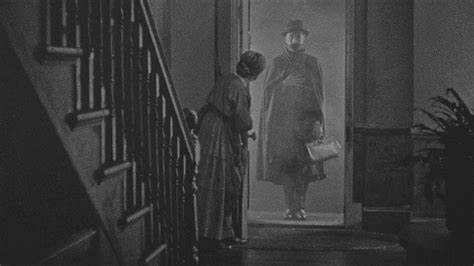
Note: This review contains spoilers.
Though often called the Master of Suspense, Alfred Hitchcock worked in a wide variety of genres including suspense, horror, romantic comedy, dark comedy, melodrama, action, dramatic stage and literary adaptions and even a musical biopic. One genre Hitch will never be associated with is the western. He never directed a western in his long career. However, the third episode of his TV series was in fact a western.
In this episode a local man (Darren McGavin) challenges a cowboy (Gene Barry) to a shootout. Both agree to have this duel when the big mantel clock strikes a certain time. However, the clock mysteriously stops.
This is an excellent episode. Though when many of us think of westerns, gunfights and action come to mind, the point of this episode is actually to avoid such action. Most of the episode is spent building up tension and the characters. Though there is little to any action, this is a very tense episode. With a small cast and one setting, there is a wonderful claustrophobic feel here that puts one on the edge of their seat. This old cabin in the rain and the dirty clothes on the characters help give this episode a real tense sense of atmosphere that keeps it from feeling as stage bound as it easily could have. Though this is a dialogue heavy episode, the dialogue is very well written, and perfects sets up the characters and the sense of tension. To not have an actual shoot out is a perfect twist. Though it could have felt anti-climactic, it actually fits the story very well.
Once again, though the story is essentially serious, Hitch's introduction takes a very tongue and cheek sense of humor, even stating that there are no horses because they couldn't remember the lines. His line about Russian roulette cracked me up being the perfect example of Hitch's dark but silly sense of humor as is what he has to say about the ending of the episode.
This is one of only two episodes directed by Dan Medford (the other was Into Thin Air (1955)), a very prolific TV director. Some of the other TV series he worked on include Climax!, The Riffleman, The Untouchables, The Twighlight Zone, The F.B.I., The Fall Guy and Dynasty.
The writers are Richard Carr and Allan Vaughan Elston. Richard Carr co-wrote two more episodes of the show Salvage (1955) and The Big Switch (1956). His other TV credits include such TV series as Racket Squad, Rawhide, Batman, Peyton Place, The Legend of Jessie James, The Waltons, The Six Million Dollar Man and Charlie's Angels. Allan Vaughan Elston co-wrote one more episode of the show, The Belfry (1956). Neither of the writer nor the director ever worked on one of Alfred Hitchcock's movies.
Gene Berry appeared in one more episode of Alfred Hitchcock Presents (Salvage) and an episode of The Alfred Hitchcock Hour (Dear Uncle George (1963)). He is probably best known for his lead role in the classic sci-fi movie The War of the Worlds (1953) and his starring roles in the TV series Bat Masterson, Burke's Law and In the Name of the Game. Darren McGavin would appear in one more episode of Alfred Hitchcock Presents, The Cheney Vase (1955) and an episode of The Alfred Hitchcock Hour, A Matter of Murder (1964). He is probably best known his leading role in the TV series Kolchak: The Night Stalker.
-Michael J. Ruhland





.jpg)